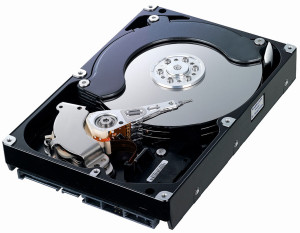
Who Wouldn’t Want Their Hard Drive to Last?
Every hard drive is bound to fail eventually, but not at rates that are identical. Six years is the average life span of a hard drive. Sometimes this is due to the manufacturer, other times the consumer because we do not care for them as we should. Here are some common reasons for failure and ways of preventing them.
This blog post refers to traditional hard drives, not solid-state drives.
1. Physical Damage to the Hard Drive
This is the quickest and most obvious way for a hard drive to fail. These drives have many moving parts that even a slight bump while it is spinning can cause problems.
To help prevent this, once a hard drive is installed do not remove it. If you need to remove it, do it fast and lightly.
While your computer is on, do not shake the computer case. Keep your computer in a place where accidents will be minimized.
Hard drives in a laptop are stronger, but you still need to exercise caution. Data corruption can happen from bumping it on the desk or wall while the drive is active.
2. Excessive Amount of Heat
Hard drives are designed to work in a specific range of temperatures. If airflow is not maintained properly to the inside of the case, temperatures will rise above this range, and problems will follow.
Having fans installed in a desktop computer can improve not only your hard drive lifespan but every component’s lifespan. Air that comes in needs to have a route for escaping that is easy. You do not want hot air lingering in the case.
To help keep laptops cool, purchase a laptop cooler.
You should get a program, such as SpeedFan, to watch what temperature your hard drive runs at.
3. Turning On and Off Frequently
The most demanding action on a hard drive is booting it up and shutting it down. This can wear the hard drive down more than it already gets from normal use.
You do not want to turn your computer on and off several times a day, but you do not want it to stay on at all times either.
A general rule is if you are walking away for longer than one day, shut the computer down. If only walking away for a couple of hours, consider using hibernation or standby mode. If walking away for less than this, either leave it on or put it in hibernation or sleep mode.
Even if you take excellent care of your hard drive, it can still end up failing. However, practicing these steps above can be helpful to keep your hard drives running longer. Make sure you know how to have the right amount of space, and how to use it to your advantage.
